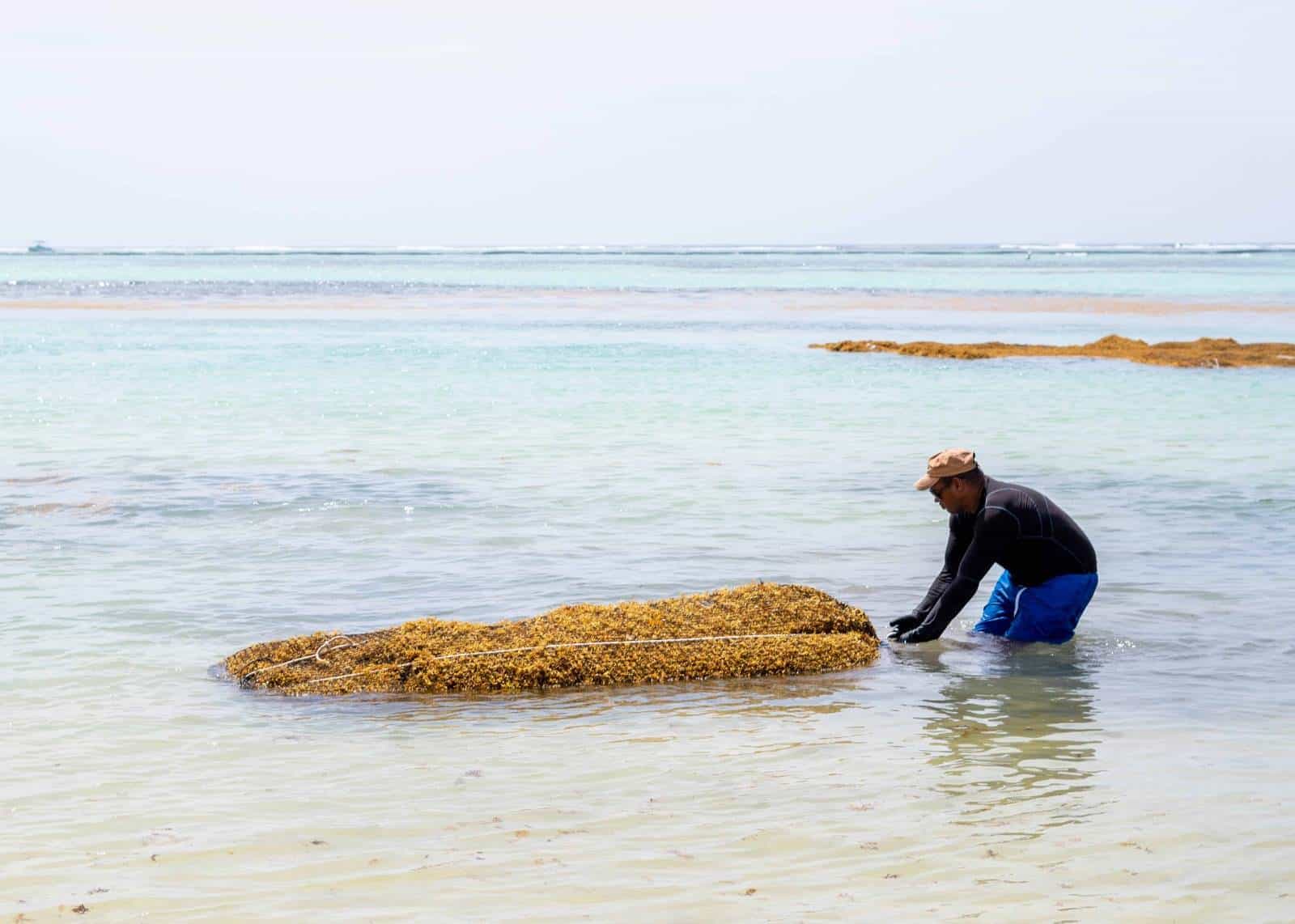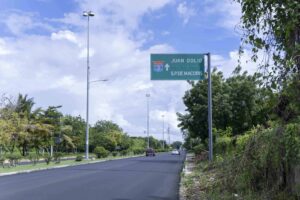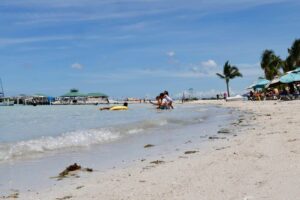
The company Finnish refining company algae, Origin by Oceanwhich exports the sargasso that invades the coasts of the Dominican Republic towards its plant bioprocessing In Finland, it hopes to export about 4,000 tonnes of this seaweed by 2027-28.
The company converts the sargasso in raw material for industries textilecosmetics and food.
Origin by Oceanin collaboration with Strategic partners As SOS Carbón, Grupo Puntacana and Nodo Logistics, they are looking for a solution ecologically sustainable to this problem.
During a visit to Free Newspaperthe chief operating officer of the companyHeikki Heiskanen, stated that currently the company is planning the logistics and taking the first steps for when a larger volume is required. sargassoby the time the installation of a plant is expected bioprocessing of the sargasso in the country.
It is estimated that this plant will be installed by 2028-29 and that the investment amounts to between 300 or 400 million Euros.
“It’s a investment very big. Therefore, we must take the first steps right now. So, 2028-29 would be the year in which this would be done. investment“, accurate.
Heiskanen stressed that the production in Finland based on the sargasso commercial is profitablewhich will then allow a investment really big for the Caribbean countries, where then “we can use that local product.”
For his part, Marcos Díaz, representative of the company in the country, he stressed that the authorities Dominicans, as well as various State institutions, such as the Ministries of Environment, Tourism, Industry and Commerce (MICM), have expressed their desire that in the future the Origin by Ocean it is possible establish in the country.
He noted that the approach of the company has been establish its Caribbean stronghold in the country.
This year, the company Finland is sending about 100 tons of sargasso to Finland.
By 2025, the goal of export It is between 100 and 200 tons.
Diaz acknowledged that they currently do not have a great impact “for clean the entire coast of the Dominican Republic (…), but the process in a few years will lead to the installation of a plant in the country, there will be a need not only for sargasso of the Dominican Republic but of the region.”

Creation of jobs
The operations of Origin by Ocean They are carried out through a management model collaborativewhich promotes the creation of jobs.
“Origin by Ocean doesn’t come here and hire people to collect, but rather promotes collectors. We ask our partners and the various collectors to supply us with the sargasso (…). We create alliance with logisticswith shipping, with everything related, it is a cooperative business model. It is one of the most important things in the culture of the company“, Diaz said.
This company began operations in the country at the end of June of 2022 with the export towards the European nation of sargasso collected in the eastern region, specifically Punta Cana.
Agreement with Intec
The Technological Institute of Santo Domingo (Intec) and Origin by Ocean They signed a agreement of inter-institutional collaboration for train the laboratory staff so that this is the university that makes the evidence with the same standards as Finland.
“Intec is the university who leads the Research Roundtable on Sargassoand is being trained to ensure that the same protocols as in Finland are applied in the country, something that was not happening before and is happening, thanks to this project,” said Díaz.
He said that two Finnish scientists had already visited the Intec laboratory and that staff training would resume at the end of the year.
The former athlete explained that once the sargassum reaches the coast, they proceed to collect it, and then transport it to Finland, refrigerated, where a process between research and production is carried out to extract the material. It should be noted that the company has a patent to bioprocess different species of algae. “Origin by Ocean is a company with all the environmental sustainability certifications, meaning that everything it has to do with must be clean fuel, sustainable processes, saving paper and energy,” said Díaz.



